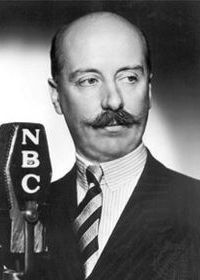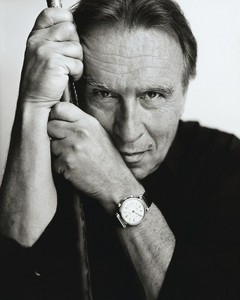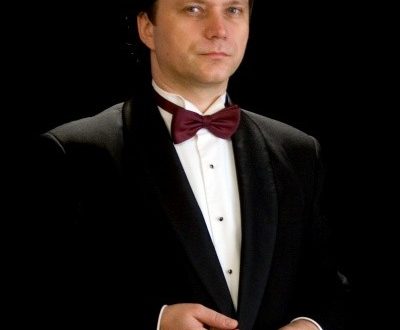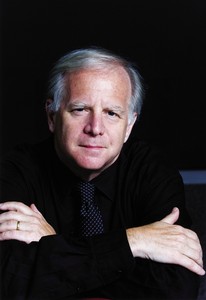
Adrian Boult |
Adrian Boult

A few years ago the English magazine Music and Music called Adrian Boult “probably the most intensively working and most traveling conductor of our time in the UK”. Indeed, even at an advanced age he did not leave his artistic post, gave up to one and a half hundred concerts a year, many of them in different countries of Europe and America. During one of these tours, Soviet music lovers also got acquainted with the art of the venerable conductor. In 1956, Adrian Boult performed in Moscow at the head of the London Philharmonic Orchestra. At that time he was already 67 years old …
Boult was born in the English town of Chichestor and received his primary education at Westminster School. Then he entered Oxford University and even then he focused on music. Boult headed the student music club, became close friends with music professor Hugh Allen. After graduating from the course of science and receiving a master’s degree in arts, Boult continued his musical education. Deciding to devote himself to conducting, he went to Leipzig, where he improved under the guidance of the famous Arthur Nikisch.
Returning to his homeland, Boult managed to conduct only a few symphony concerts in Liverpool. After the outbreak of the First World War, he becomes an employee of the military department and only with the onset of peace returns to his profession. However, the gifted artist was not forgotten: he was invited to conduct several concerts of the Royal Philharmonic Orchestra. A successful debut decided the fate of Boult: he begins to perform regularly. And in 1924, Boult was already at the head of the Birmingham Symphony Orchestra.
The turning point in the artist’s biography, which immediately brought him wide fame, came in 1930, when he was appointed musical director of the British Broadcasting Corporation (BBC) and chief conductor of its newly formed orchestra. For several years, the conductor managed to turn this group into a highly professional musical organism. The orchestra was replenished with many young musicians, brought up by Boult at the Royal College of Music, where he taught from the early twenties.
Back in the twenties, Adrian Boult undertook his first tour outside of England. He then performed in Austria, Germany, Czechoslovakia, and later in other countries. Many first heard the name of the artist in the BBC music programs, which he led for twenty years – until 1950.
One of the main goals of Boult’s touring activities was to promote the work of his contemporaries – English composers of the 1935th century. Back in XNUMX, he held a concert of English music at the Salzburg Festival with great success, four years later he conducted its performance at the World Exhibition in New York. Boult conducted the premieres of such significant works as the orchestral suite “Planets” by G. Holst, the Pastoral Symphony by R. Vaughan Williams, the Color Symphony and the piano concerto by A. Bliss. At the same time, Boult is known as an excellent interpreter of the classics. Its extensive repertoire includes works by composers of all countries and eras, including Russian music, represented by the names of Tchaikovsky, Borodin, Rachmaninoff and other composers.
Many years of experience allows Boult to quickly get in touch with musicians, easily learn new pieces; he knows how to achieve from the orchestra the clarity of the ensemble, the brightness of colors, rhythmic accuracy. All these features are inherent in the London Philharmonic Orchestra, which Boult has led since 1950.
Boult summed up his rich experience as a conductor and teacher in his literary and musical works, among which the most interesting are the Pocket Guide to Conducting Techniques, written jointly with V. Emery, the study of the Matthew Passion, their analysis and interpretation, as well as the book “Thoughts on Conducting”, fragments of which have been translated into Russian.
“Contemporary Conductors”, M. 1969.





